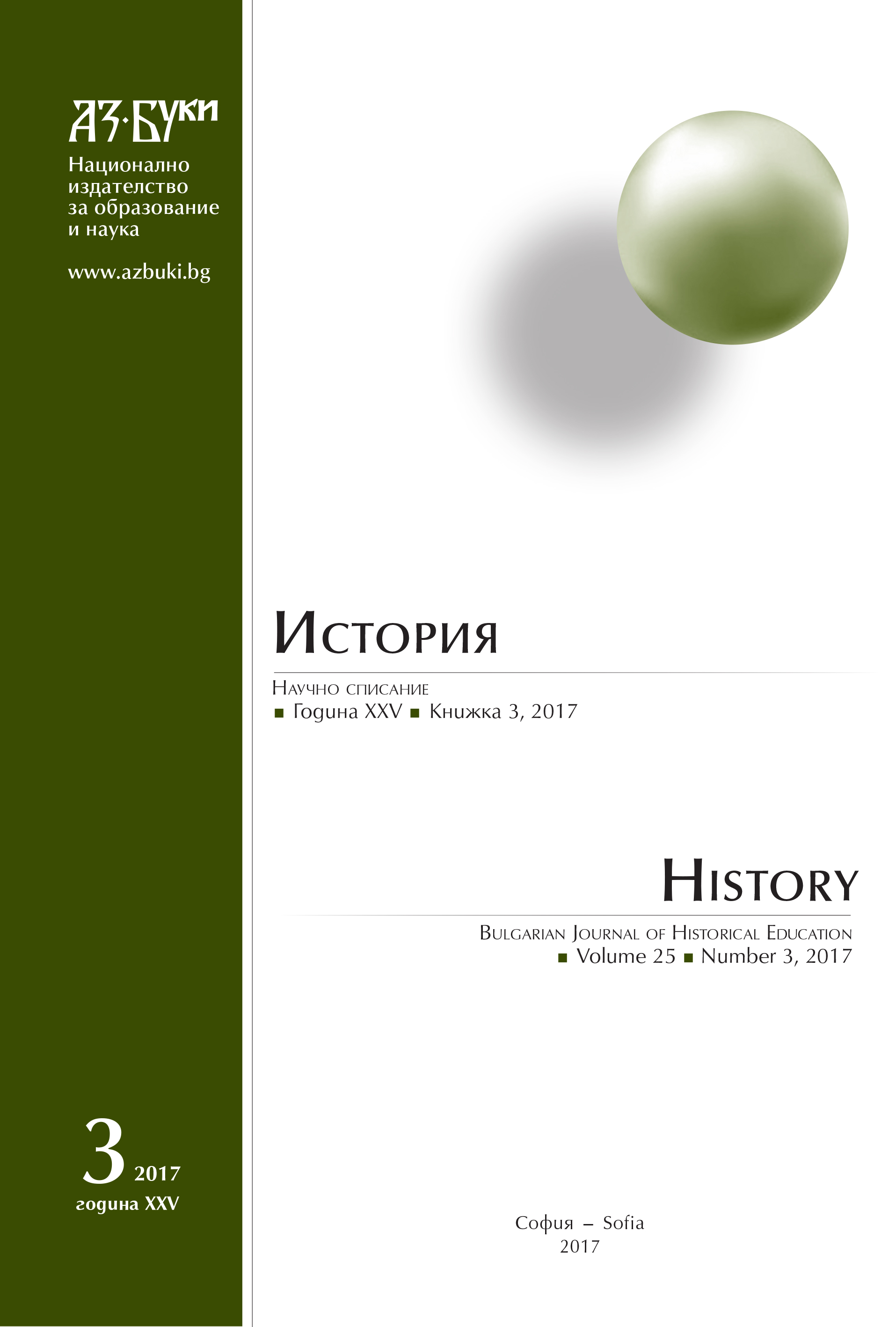Операция „Надолни“ и съветско-германските отношения (януари 1933 – юни 1934)
Operation “Nadolny” and the Soviet-German Relations (January 1933 – June 1934)
Author(s): Samuil ShivachevSubject(s): Politics / Political Sciences, History, Civil Society, Diplomatic history, Local History / Microhistory, Political history, Modern Age, 19th Century, Interwar Period (1920 - 1939), Geopolitics
Published by: Национално издателство за образование и наука „Аз-буки“
Keywords: USSR; Nazi Germany; Rudolf Nadolny; Sir Eric Phipps; German-Soviet relations
Summary/Abstract: The article examines the specificities of Soviet-German relations during the first year of the Nazi rule in Germany. The main foreign policy steps of both parties are outlined, as well as the role of their representatives. Operation “Nadolny” is named after Rudolf Nadolny, a German ambassador in Moscow (August 1933 – June 1934), a brilliant career diplomat, one of the last great diplomats in the Weimar Republic, a convinced supporter of the policy of close cooperation with the Soviet Union. The clash between the German government and Rudolf Nadolny is clearly evident on the issue of the continuation of Rapal’s policy. This is a clash between the German ambassador’s foresight and pragmatism and the aggressiveness of the new authorities in Berlin. On the other hand, the authorities in Moscow wanted evidence of their safety and continued good relations. Nadolny succeeded to bravely predict Germany’s return to the USSR, which happened in August 1939.
Journal: История
- Issue Year: 25/2017
- Issue No: 3
- Page Range: 311-323
- Page Count: 13
- Language: Bulgarian
- Content File-PDF

